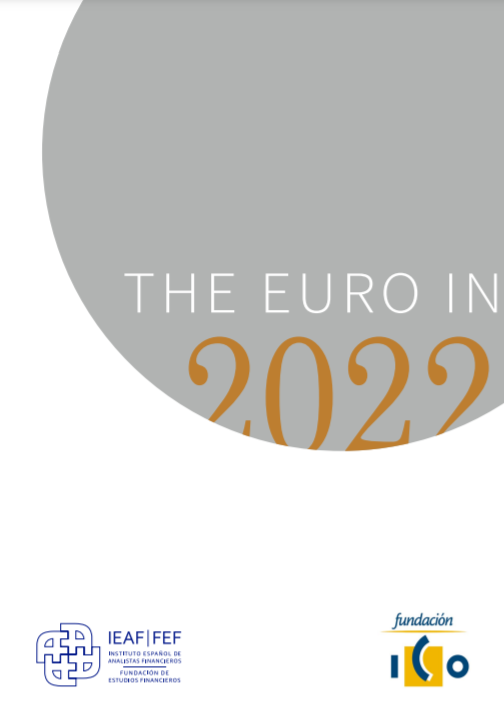Blog Post
A Major Step Toward Combating Money Laundering in Europe
Combating money laundering in Europe took a momentous step with finance ministers of France, Germany, Italy, Latvia, the Netherlands, and Spain putting forward a joint proposal.
The struggle to combat money laundering in Europe took a momentous step forward on November 8 when the finance ministers of France, Germany, Italy, Latvia, the Netherlands, and Spain put forward a joint position paper. Their proposal is likely to pave the way for strong European Union legislation, buttressing the credibility of the new European Commission led by Ursula von der Leyen.
Adopting this proposal would create, for the first time, a centralised anti–money laundering (AML) supervisor with EU-wide authority in Europe. It is an apt response to a recent series of embarrassing revelations of AML failures. These highly publicised lapses started with the collapse of Latvia’s ABLV Bank after US Treasury determined in February 2018 that it was “of primary money laundering concern.” Following that wake-up call, other AML shortcomings have emerged involving European banks. These include large ones like ABN Amro, Danske Bank, ING, Raiffeisen, and Swedbank, and smaller banks in Cyprus, Estonia, Malta, and Latvia, among others.
Momentum supporting a centralised AML supervisor has been building
The six countries’ joint paper came after an initial policy response that was quick by EU standards, but sadly underwhelming. In September 2018, the European Commission president Jean-Claude Juncker proposed strengthening the AML coordinating role of the European Banking Authority (EBA), an EU agency that brings together banking supervisors of all EU member states. The corresponding legislation was approved a few months later. But it left two major flaws uncorrected. First, the EBA is a “supervisor of supervisors” that only steps in (if at all) after national supervision failures become evident, too late to deter misbehavior, and that offers national supervisors little incentive to cooperate. Second, the EBA’s intergovernmental governance is weak when it comes to remedial action, as the EBA’s board of supervisors demonstrated when it rejected in April 2019 a staff recommendation to pursue the Danske Bank case.
That episode strengthened the backbone of several key participants. The Dutch government led by proposing a European AML supervisor in July 2019—the joint paper borrows substantially from this proposal. Later in July, the European Commission candidly reported recent AML failures and hinted at further reform. Meanwhile, senior policymakers including then-ECB President Mario Draghi, top ECB banking supervisor Andrea Enria, and European Commissioner Valdis Dombrovskis have called for a European AML supervisor. As we argued in a Policy Contribution last year, an authoritative AML supervisor at the European level is a necessity if the EU is to be effective and credible in this area.
A European AML supervisor could be either a new EU agency or the EBA, more likely the former
The combined political heft of the EU’s largest countries, other than the United Kingdom, now adds to this momentum with the finance ministers’ joint paper. Its main thrust is to call for a “supervisory mechanism,” akin to the Single Supervisory Mechanism (SSM) that exists for the prudential supervision of banks, and thus “featuring a European central supervisor cooperating with national supervisory authorities.” That European AML supervisor could be either a new EU agency, with Article 114 of the Treaty on the Functioning of the European Union (TFEU) its presumed legal basis, or the EBA. In the latter option, however, the joint paper makes it clear that a comprehensive overhaul of the EBA’s governance would be needed “to guarantee the required level of independence” as the paper delicately puts it—a task arguably as complex as a new institutional creation. The political issue underlying the choice between the two options, as with any EU agency, is location. The EBA would presumably remain in Paris, while a new agency could be in any member state.
Finance ministers propose new AML supervisor have direct authority
As with the SSM, the EU supervisor would have direct authority over some financial firms and would thus not be a mere supervisor-of-supervisors on the current EBA model. The joint paper states that
“Establishing a central supervisor that can supersede national supervisors and can independently conduct supervision is necessary to ensure consistent and effective European [AML] supervision. […] the European supervisor, having performed a thorough risk assessment in cooperation with the national supervisors, would concentrate its direct supervision, resources and efforts on the riskiest institutions as well as on the member states and areas where national supervision is apparently insufficient or inappropriate.”
As this text makes clear despite the convoluted syntax, the EU supervisor itself would choose which firms are supervised directly. Importantly, it would therefore not have to rely on the crippling process of achieving consensus with national authorities or on uniform criteria easily circumvented by bad actors.
On the latter point, the joint paper improves on the Dutch contribution in July, which called for “objective criteria” to characterise risk. Observable metrics should of course enter the assessment, but the decision on which entities to supervise should rest on the European supervisor’s judgement. The context is very different from the SSM’s, where smaller banks are generally left to national supervision. A proportionality-based approach that may be apt for prudential supervision cannot apply in AML supervision, because major AML violations often happen in smaller firms that have otherwise no systemic relevance. Prudential supervisors look at the haystack, but AML supervisors have to look for the needles.
Direct supervisory authority also implies that the EU supervisor could impose administrative fines for violations of the AML framework, big enough to dissuade bad behavior, though the joint paper does not state that explicitly. There is established precedent: the European Securities and Market Authority (ESMA) imposes fines on entities it supervises, based on the same Article 114 TFEU.[1]
The joint paper also suggests further harmonisation of the AML regulatory framework in EU law. A directly applicable EU regulation would replace some legislation that currently requires transposition into national law. This step makes sense, but it should not be used to delay the establishment of the European central supervisor. Both tasks would be best addressed together.
These actions will not be a panacea. Later endeavours could include more coordination of the financial-intelligence-unit function at the EU level, and linkages between AML and EU sanctions. These must be preceded by improvements of the police, judiciary, security, and intelligence capabilities at the EU level. The establishment of a European AML supervisor will help pave the way for such future, more complex changes.
As for the UK, for as long as it stays in the single market it must be included in the EU AML supervisory mechanism. If and when it leaves the single market, a lower probability than leaving the EU, tailored arrangements will be needed. Unfortunately, the UK did not co-sign the joint paper, but one hopes it will play a constructive role in the next steps.
EU member states likely to move fast to formalise a strong European AML supervisory mechanism
Given the impetus from the joint paper, EU member states can and probably will formalise a strong European AML supervisory mechanism before year-end, and the European Commission could make a legislative proposal in the first half of 2020. Since AML supervision is as much a security challenge for the European Union as a regulatory one, it will buttress the von-der-Leyen-led European Commission’s credibility as a “geopolitical Commission.” It may also help create momentum for further shoring up the EU financial supervisory architecture, including the reform of ESMA to transform it into a truly independent supervisor and the completion of the banking union. The joint paper is bad news for money launderers and good news for Europe.
[1] Note: One of the authors (Véron) is an independent non-executive director at DTCC Derivatives Repository plc, an entity under the direct supervision of ESMA.
Republishing and referencing
Bruegel considers itself a public good and takes no institutional standpoint. Anyone is free to republish and/or quote this post without prior consent. Please provide a full reference, clearly stating Bruegel and the relevant author as the source, and include a prominent hyperlink to the original post.











